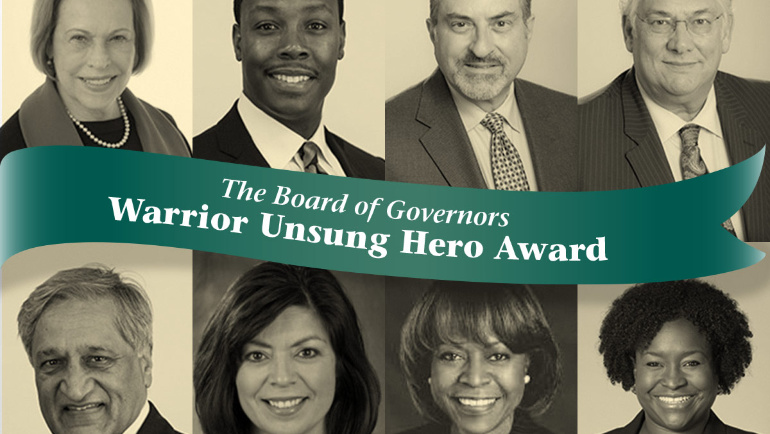
Wayne State University recently established the Board of Governors Warrior Unsung Hero Award to honor Warriors whose selfless efforts reflect the university’s mission of meaningful engagement.
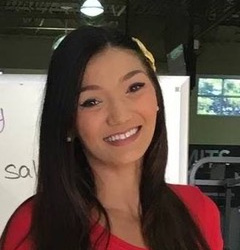
The Board of Governors selected four recipients, two of them medical students at the Wayne State University School of Medicine. Rafael Ramos and Lianna Foster-Bey, both members of the Class of 2022, were given the award virtually during the June 19 board meeting.
In April, Foster-Bey created and organized field hand-washing stations around Detroit for those who do not readily have access to running water.
A member of Street Medicine Detroit, Foster-Bey is also on the leadership team of the Street Medicine Institute Student Coalition. Upon discovering that the Detroit Police Department had been moving homeless encampments during the COVID-19 pandemic, she coordinated with multiple groups on how to best provide support to members of the homeless community who had been moved against their will.
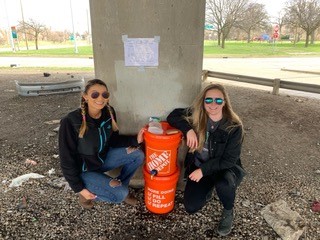
“I am grateful and humbled by the recognition from the Board of Governors for the Unsung Hero Award. Many other students and faculty from WSU have been doing amazing work throughout the pandemic. I am inspired every time I read or hear their stories,” Foster-Bey said. “Although I have been the project lead, the hand-washing station initiative has been made possible by a team of dedicated volunteers, particularly continued work by Mara Darian, Anneliese Petersen, Danielle Rangel Paradela, Roxanne Ilagan and Anthony Eid, the leadership of Street Medicine Detroit, community donations and continued collaboration with students from Michigan State University School Medicine.”
Foster-Bey served on the Street Medicine Detroit board as a medical school sophomore.
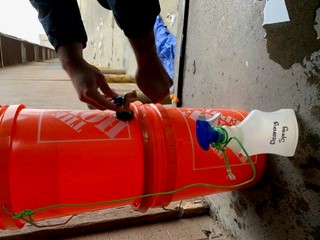
“Throughout this time, I learned the stories of many of our patients experiencing homelessness in Detroit. During the pandemic, these individuals and others were on my heart and mind; and because many businesses and homeless services were closed, I was especially concerned about how we could assist these folks in continuing to meet their basic needs such as hand hygiene, which is also a necessity to protect against the spread of COVID-19,” she said. “After hearing about the portable sinks created by Love Beyond Walls and hand-washing stations created by a student group in Atlanta, I thought that field hand-washing stations could also be feasible and beneficial here in Detroit. A small team of volunteers from the Wayne State University School of Medicine and the Michigan State University College of Medicine came up with a plan for the stations, locations where they would be most useful, and procured donations for the materials (Home Depot in Allen Park donated enough materials for six stations). We made the sinks in early April and had all six in the community by April 10.”
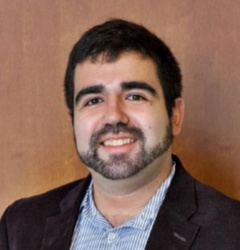
Four stations in the community are sanitized and refilled two to three times weekly by volunteers. Another station may be added soon. “Our hope is to expand the initiative while also focusing on sustainability.
“We recently noticed the stations being used for dental hygiene and laundry. While the stations certainly continue to serve their purpose, Street Medicine Detroit, in collaboration with Detroit Street Care, has partnered with Love Beyond Walls to provide two portable sinks in additional locations in Detroit. Our plan is to continue with this initiative as long as they are providing benefit to our neighbors on the street,” Foster-Bey said.
Her co-award winner and classmate, Ramos, has been using his 3D printer to make personal protective equipment for clinics, hospitals and medical student-run free clinics. He has been producing these items from his apartment, personally providing the funds for his ongoing effort.
"I have the incredible privilege of being surrounded by mentors, friends and classmates who have gone above and beyond to provide support in their communities from the onset of the pandemic, from running food banks to helping with COVID testing and patient management,” Ramos said. “I wanted to be as responsible as I could be by staying home, but frankly the drive to do something was contagious.”
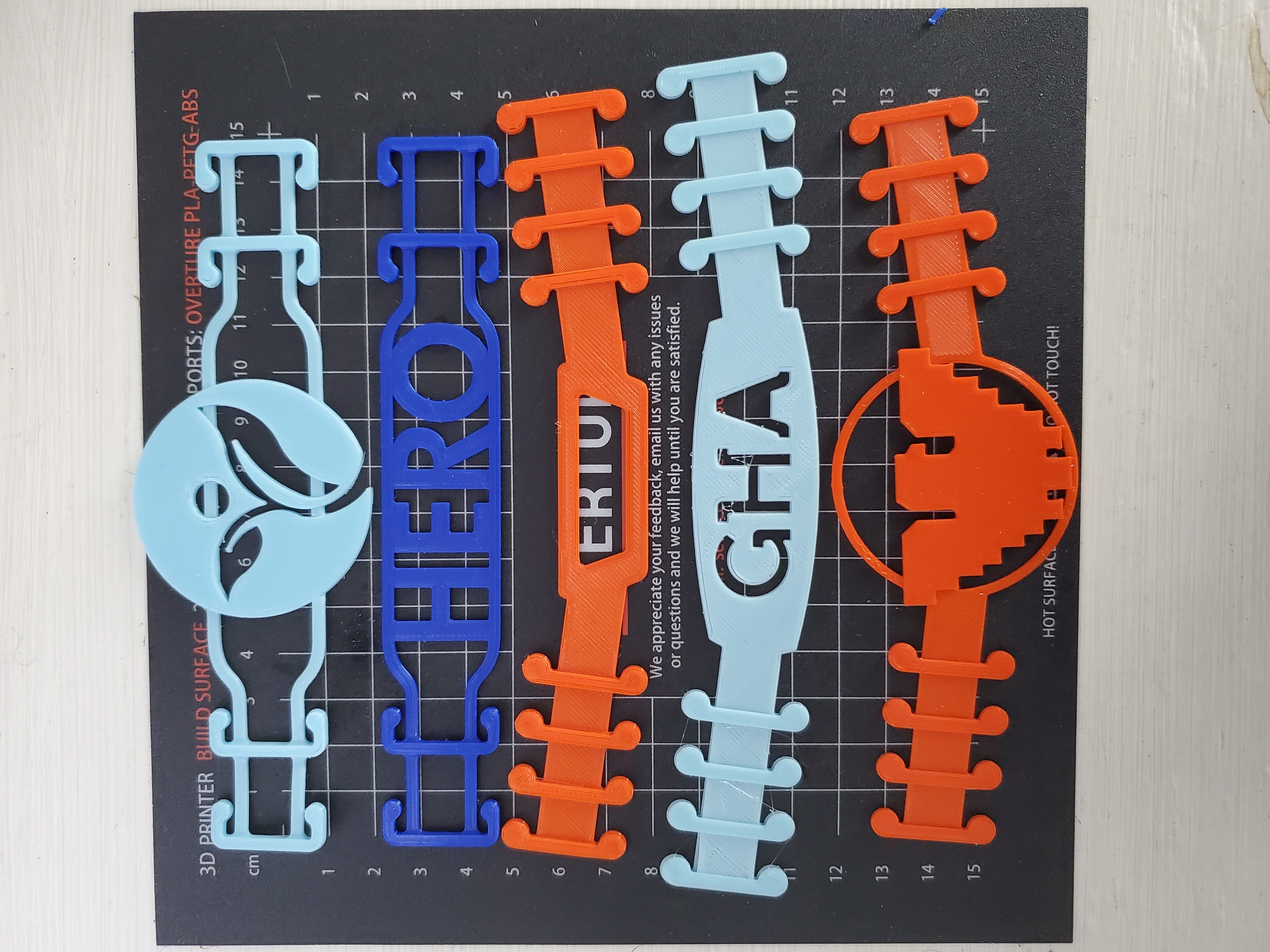
Ramos is in the university’s M.D.-Ph.D. combined degree program. He brought face shields, ear savers and additional PPE to health care centers around Detroit, including the Cass Clinic, Community Health and Social Services Center and the Corktown Health Center.
“At the onset of the pandemic, the news that health care professionals and frontline workers were lacking appropriate PPE given the sudden surge in demand was widespread, and an enormous number of talented engineers, makers and hobby enthusiasts from around the world realized that this form of additive manufacturing could be used to mass produce a lot of these supplies,” he said. “It was very easy to join one of these online communities, and once I acquired the necessary materials it was easy to continuously run my machines to make different models of face shields, custom ear savers and contactless door openers using open-source models.”
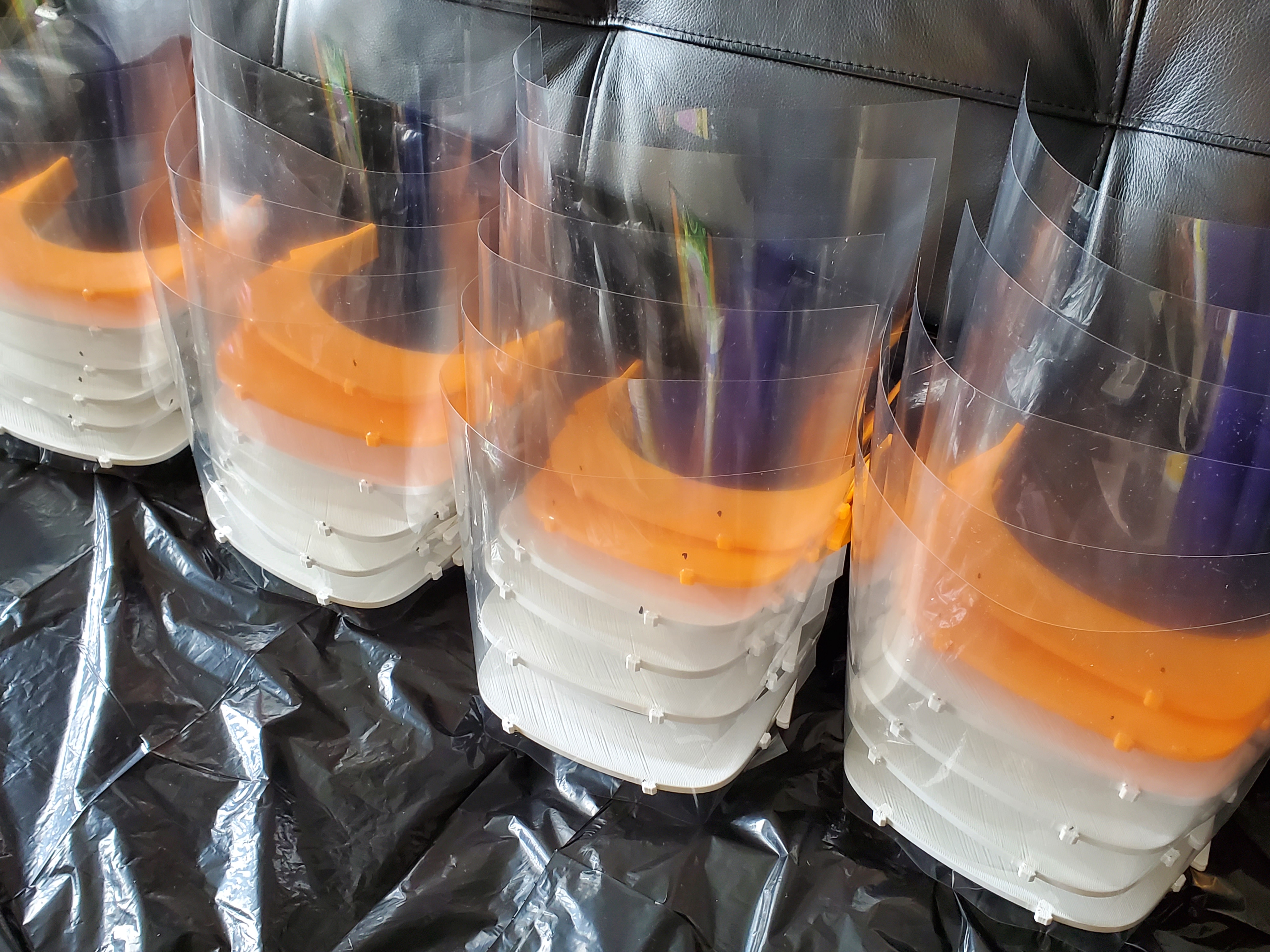
Where appropriate, Ramos tailored some design files depending on the need, usually to include logos.
“After reaching out to a number of physicians and volunteers, the local need was palpable, and before I knew it I had a project that took up the better part of my time over the past three months,” he added.
To date, Ramos has donated more than 1,000 pieces of PPE to hospitals, clinics and other organizations in Detroit and Flint. He also shipped supplies to physicians in New York and to the Volunteers in Medicine Clinic in Hilton Head, S.C., where he volunteered and interpreted at last year.
“It has also been nice to be able to provide this kind of support to some of the School of Medicine student projects that have been actively working in the community this whole time,” he said. “This honor is obviously appreciated, but in reality I've been a cog in an incredibly proactive web of support, all of whom deserve recognition. Cesar Chavez Academy High School, whom I was able to contact thanks to the WSU Latino Medical Student Association, graciously loaned me one of their printers to add to my efforts. I also received some key production insight from students in the WSU Engineering departments who managed their own initiative of this type, and the local non-profit, Wish Upon a 3D-star. The herculean task of finding places in need and subsequently distributing everything I made was supplemented through community groups like the Protecting Frontline Heroes: Metro Detroit Facebook group and the student-led DET needs PPE. With so many people working to keep their communities afloat during this time, maintaining printers, assembling face shields and sterilizing supplies was the least I could do.”
For additional PPE supplies, email rafael.ramos@med.wayne.edu.
In May, members of the Wayne State community were invited to help the board identify faculty, staff and students for the awards. Nominations were subsequently reviewed by the Board of Governors.
The third Board of Governors Warrior Unsung Hero Award winner is Suzanne Brown, who spearheaded WSU’s crisis hotline for metropolitan Detroit health care workers, launched in April. A joint collaboration between the School of Social Work and the College of Nursing, the crisis line offers free, confidential support to doctors, nurses and other first responders working on the front lines of the COVID-19 pandemic.
The fourth Warrior Unsung Hero is David Zarrieff. In April, Zarrieff created the Serving our Seniors (S.O.S.) program to meet the needs of a particularly vulnerable population. Three days a week, he leads members of the WSU Police Department in checking on seniors living in the Woodbridge area near campus. During these checks, officers ensure that the seniors are physically well and determine any immediate needs.
For more information about the Board of Governors Warrior Unsung Hero Award, visit bog.wayne.edu/warrior-unsung-hero-award.